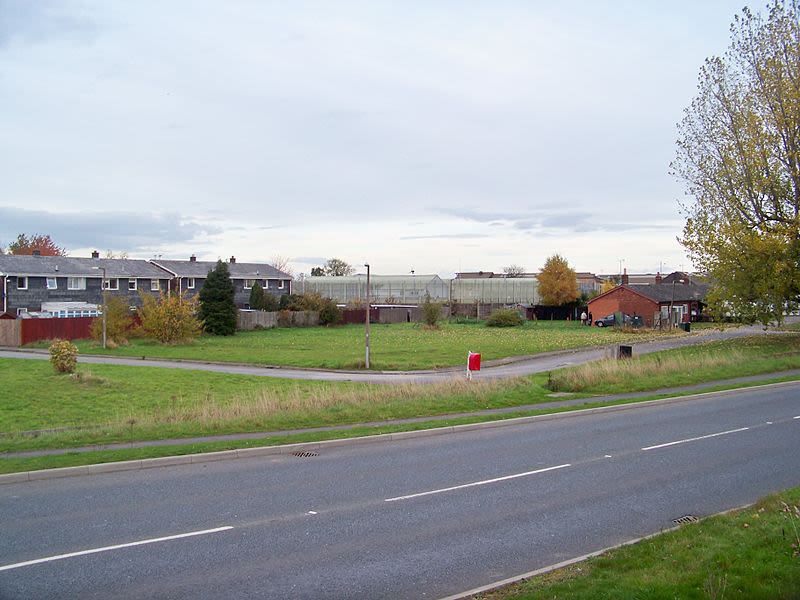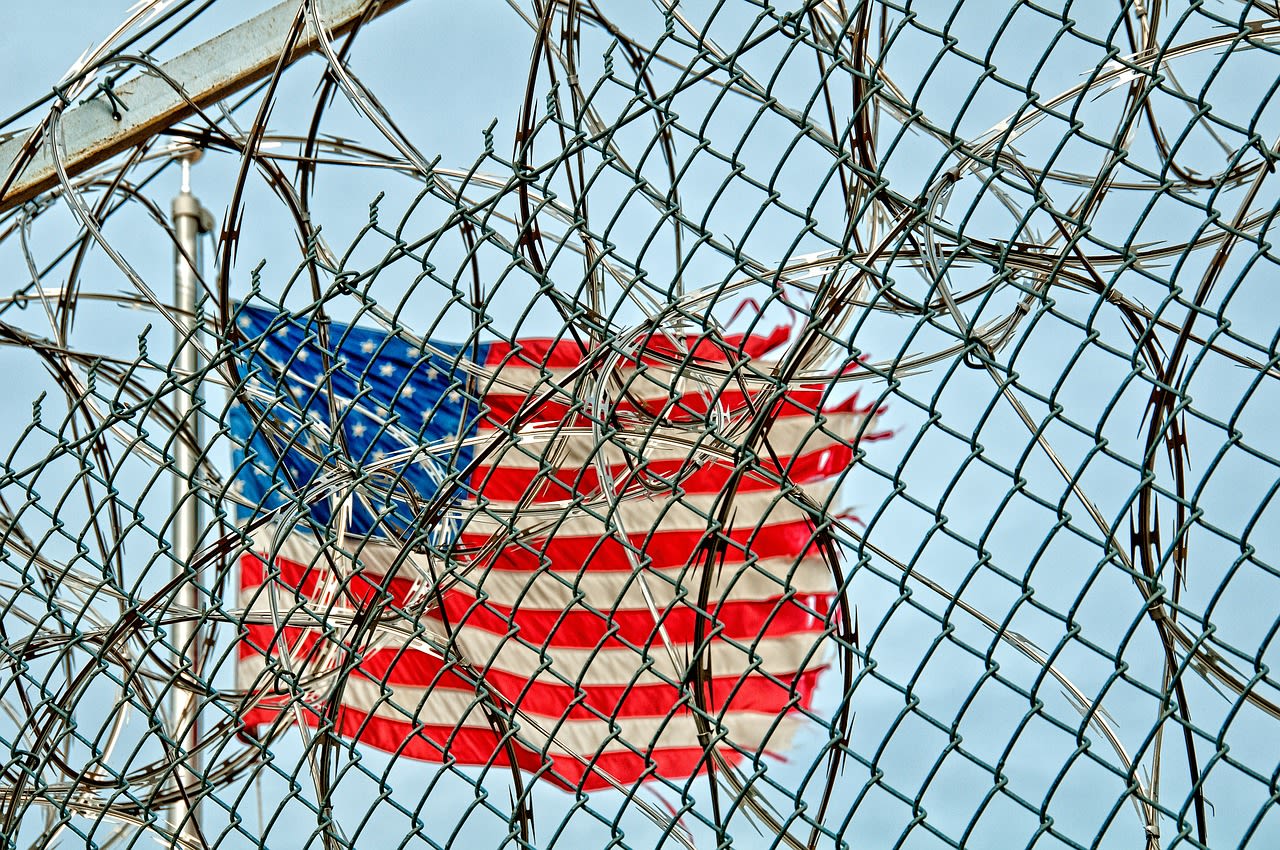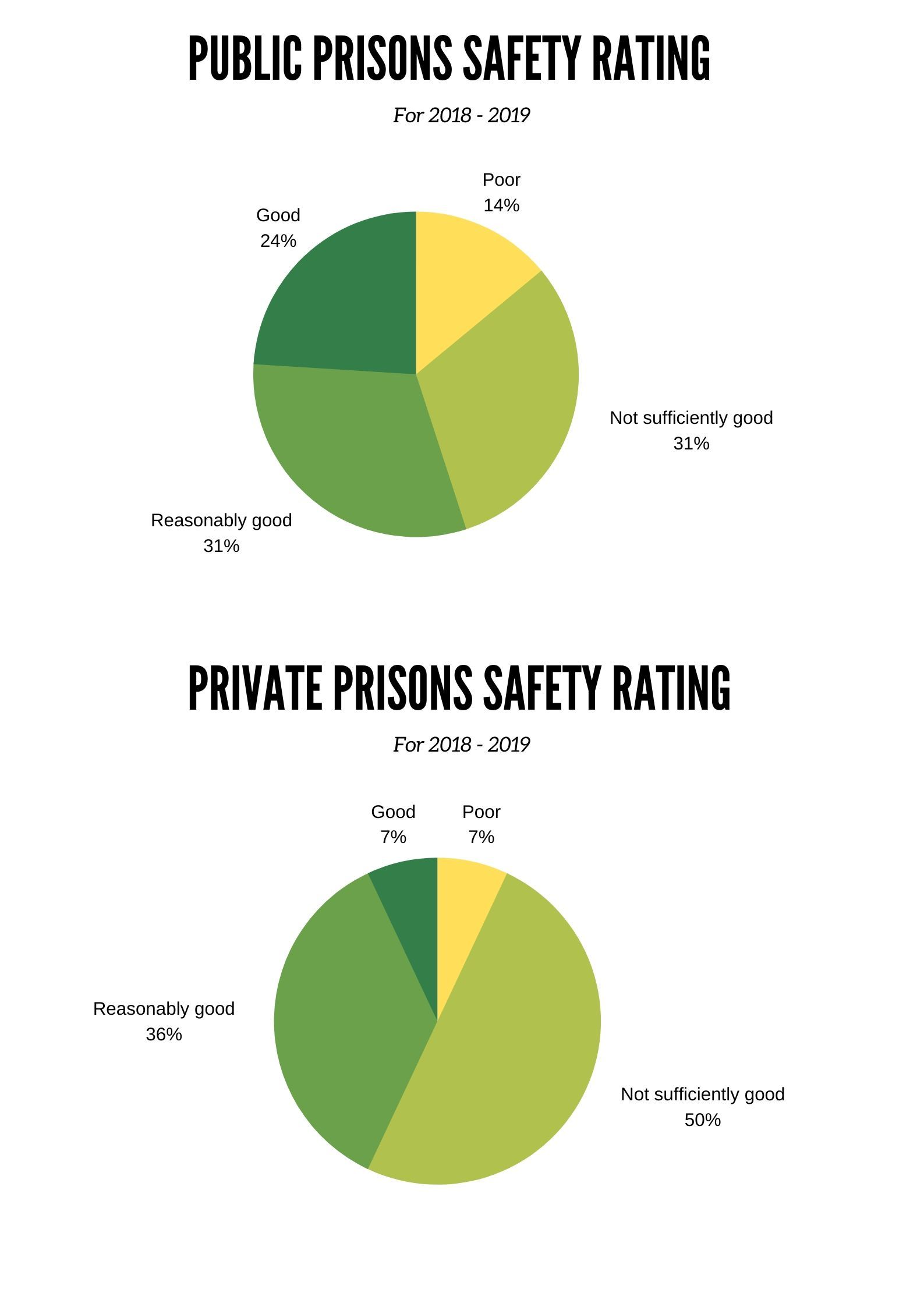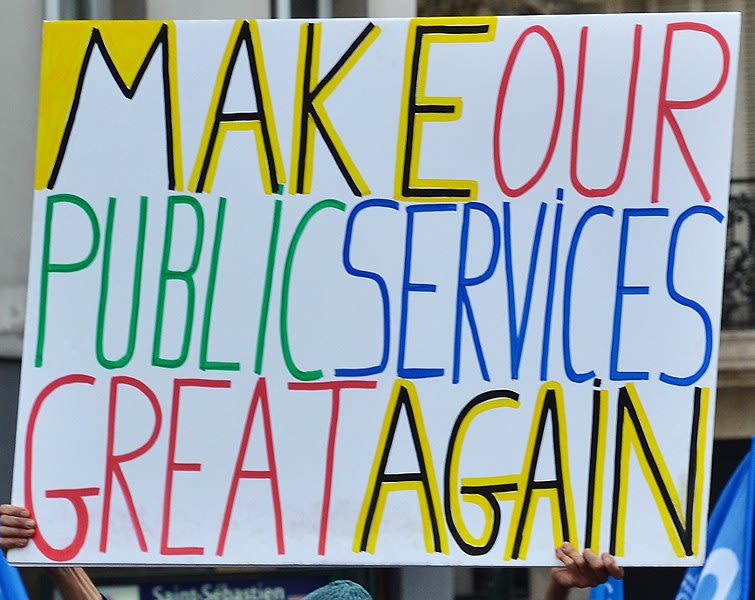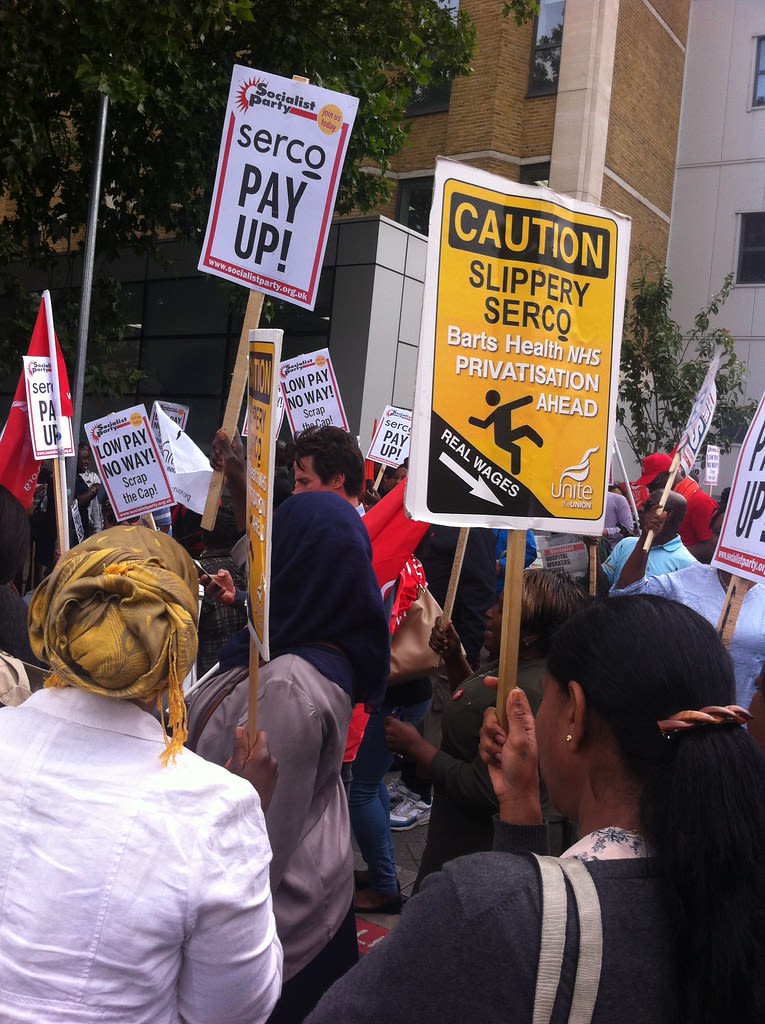PUBLIC VS PRIVATE PRISONS
Real stories
from behind bars

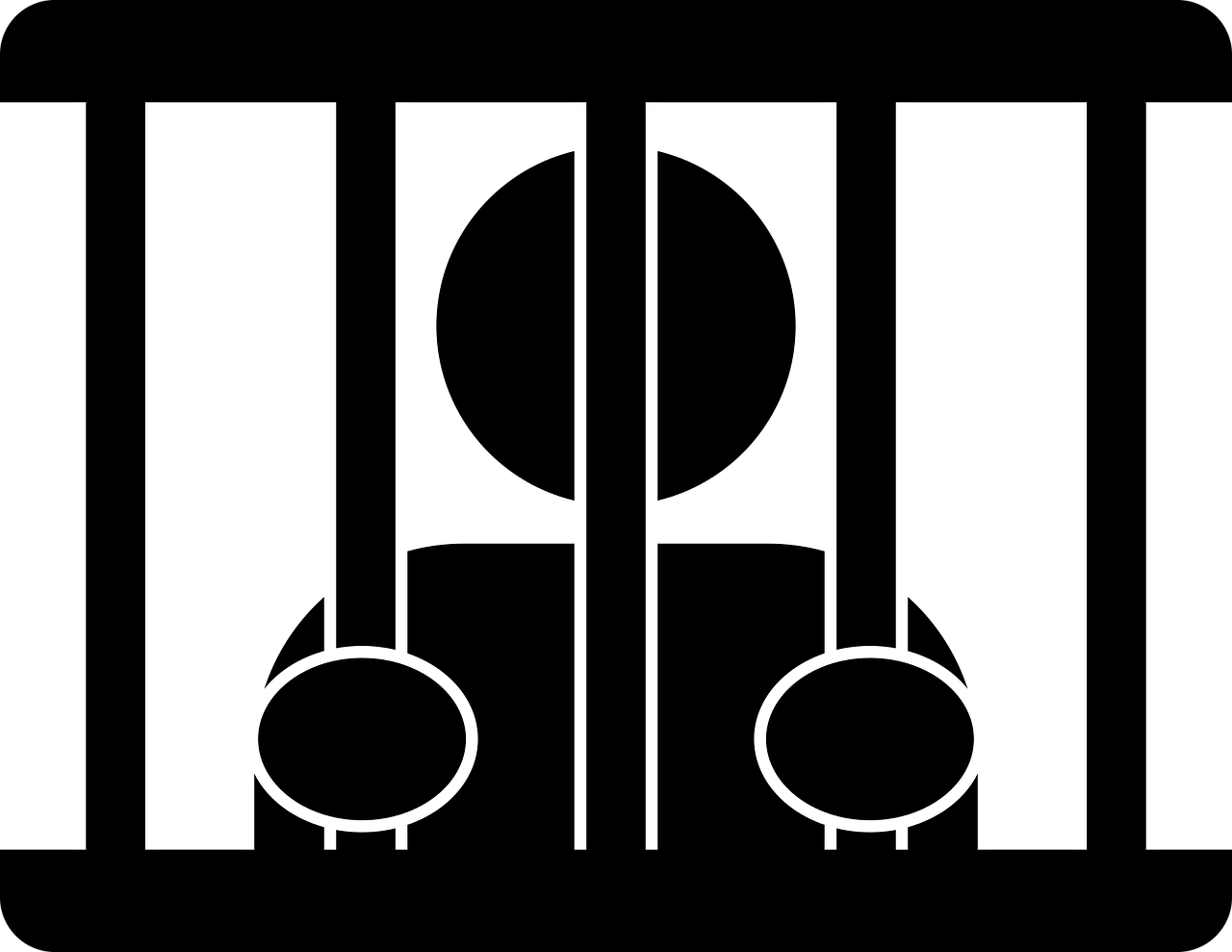
My interest in the prison system began with my brother.
Nathanael, now aged 23, was sentenced to six months in prison in 2018 for possession of an offensive weapon and menacing behaviour. He spent three months at HMP Bedford. Later that year he was sentenced to 40 months for intent to supply Class A drugs and possession of Class B drugs. He was released from HMP/YOI Isis on April 15, early, due to the Coronavirus COVID-19 Pandemic and the government's scheme to release 4,000 prisoners early.
Throughout his time in and out of prison I have come to understand the drastic differences between prisons across England. Nathanael has spent time in HMP Bedford, HMP Altcourse, HMP/YOI Stoke Heath and HMP/YOI Isis and I have visited him in all of them. He said:
"They were all slightly different to each other. Some you get your own key to your door, others you have to be up by a certain time. Different kinds of people in each as well. Like, up north it's mostly 'crack heads.'"
None of them would have prisoners leaving five star reviews, understandably. The prison system has been underfunded for a long time and that is evident in most prisons. However, there were some I visited with worse conditions than others. Some had cockroach infestations while others were riddled with mould.
After seeing so many awful conditions I began to wonder what the reasons behind these dire circumstances were. Lack of funding is an obvious one and is often in the news. But it is clear that some prisons have better conditions than others and why would that be, I thought, if they're all supposed to be run in a similar way?
One difference in prisons across England and Wales is the ownership. Most prisons are publicly owned but some have been contracted out and I have seen first hand the differences in both.
Privatisation often gets a lot of bad press and even has campaigning groups to stop the outsourcing of prisons. They are often criticised for being more violent than public prisons, with inexperienced staff and prisoners not feeling as safe.
I am generally against the privatisation of public services but from what I have seen, it is the private prisons that have the better living conditions and according to my brother, they are better.
But that poses the question of why? When profit is made from a private prison holding more prisoners, why wouldn't they want more people in prisons if that increases their profit?
The main aim of prisons should be rehabilitation. That is not just beneficial for the prisoner, but for the wider community. If that can be achieved in both public and private prisons, there would not be an issue to discuss.
Although I have my own opinions on private prisons, as a journalist I have to look at both sides of the argument and analyse the data to see which of them has a better impact on prisoners and for the benefit of our wider society.
What makes a prison 'good' or 'bad'?
It is extremely difficult to compare public and private prisons without having to decide for yourself what makes a prison 'good' or 'bad'.
For the government, it is likely to be about keeping the operational cost as low as possible - that would make a prison 'good'.
For the public it is likely to be about the rehabilitation of prisoners which would better our wider society.
For prisoners it is likely to be about what everyday life is like within the prison. I asked my brother what he thinks makes a prison 'good', he said:
There are many factors to consider when comparing prisons, as a lot of controversial issues are rife within the prison system that may not necessarily relate to the ownership of the prisons.
There are severe mental health issues within prisons. Suicide rates have reached their recorded highest in recent years and self harm incidents have been on the increase for a long time.
The level of violence in prisons has been on a steady increase for a few years now and riots have broken out across different prisons.
Another current issue is the Coronavirus Pandemic. The government issued a scheme to release 4,000 prisoners early to control the spread of the virus. It is extremely easily spread in prison as they live in such close proximity and over 1,000 prisoners had been infected. The government quickly stopped this scheme after six prisoners were mistakenly freed, with plans to reintroduce the scheme after more measures were put in place to ensure security.
So, as much as privatisation is an important issue to discuss, we must stay fully aware that there are other factors which contribute to our failing prison system.
Analysing data on prisons is important in assessing which is safer or better for prisoners, but another key factor is finding out what it means for real people.
Personal accounts from Nathanael and my mum about what public and private prisons meant for them will give a deeper insight into the real stories from behind bars.
Stories from prison officers are also crucial in examining the day-to-day operations of a prison.
Prison experts are also vital in understanding the strategy involved in privatising prisons and what that meant for real people.
Annual government reports look at every aspect of the way prisons are run, from ownership down to violence and safety.
Violence
Violence in prisons has increased to record high levels in recent years. Violence includes both prisoner on prisoner assaults and assaults on staff.
Violence in private prisons is often scrutinised, especially with the riots at HMP Birmingham while G4S still had ownership, causing them to lose their contract.
However, violence has actually increased across both prison sectors.
The five prisons with the highest number of prisoner on prisoner assaults (per 1,000) for the year 2018/2019 were:
HMP/YOI Werrington - 2,703
HMP Cookham Wood - 2,444
HMP/YOI Wetherby - 2,210
HMP Feltham - 1,415
HMP Aylesbury - 1,113
None of the five most violent prisons for last year are private.
It is also important to note the types of prisons the most violent ones are, as it may not be due to the prisons being public or private. For example, Werrington is a Young Offenders Institute (YOI) holding young people from 15-18. YOIs are typically more violent than other prison categories which would play a part in the higher level of violence.
So, if the most violent prisons are public does that mean statistically they are less safe for prisoners?
Mental health
Mental health is another crisis within the prison system. It is not recorded how many people in prisons suffer from mental illnesses and issues, as the government don’t actually know.
The only data we can look at is the rate of self harm and self inflicted deaths.
In 2016 the amount of suicides reached its highest in the last 20 years where it rose to 116. The amount of self harming incidents is on the rise also, reaching its highest in 2019 at 699 (per 1,000 prisoners).
This is indicative of the government’s failure to properly address the mental health crisis within prisons.
Prisoners are screened as they arrive in prison for mental illnesses but prisons don't have access to GP records, so they don’t always know if a prisoner has been diagnosed. This is an issue across the board when it comes to the prison system. The data available isn’t detailed enough to assess whether public or private prisons are better at looking after those with mental health issues.
This should be a sign to the government that more resources and funding needs to be put into bringing down the rate of suicides and self harm incidents.
The National Audit Office (NAO) also assess prisons. Amyas Morse, head of the NAO said in his report:
“The rise in prisoner suicide and self-harm suggests a decline in mental health and well-being overall. The data on how many people in prison have mental health problems and how much government is spending to address this is poor. Consequently government do not know the base they are starting from, what they need to improve, or how realistic it is for them to meet their objectives. Without this understanding it is hard to see how government can be achieving value for money.”
Global private prisons
In the infographic above, you can see that the US have the highest rate of incarceration in the world. Their policies are completely different to ours, especially when it comes to privatisation.
There are reports that judges, who should be the people who behave most ethically, have shares in private prisons and so send people to prisons to increase their own profit. This morally criminal behaviour is one of the reasons some states have banned private prisons.
I spoke with the ex Finance Director of the Prison Service about the situation in the States and if it was possible to happen here, he said:
Safety
Safety in prisons is measured by HM Chief Inspector of Prisons. Private prisons are often criticised for their staff being inexperienced leading to unsafe conditions for them and prisoners.
The safety ratings (shown on the right) given by the Chief Inspector prove this as the overall ratings of 'good' prisons were higher in public than in private.
A comparative study by Ben Crewe and others at the Institute of Criminology at Cambridge University compared the attitudes and behaviour of five privately owned prisons and two public sector prisons.
They found that public sector prison officers may have been more ‘cynical’ about the job. They treated prisoners as criminals rather than people. However, prisoners still tended to feel more safe in that environment as the staff were more predictable and more helpful in a practical way. This is a common theory and my brother agreed with it.
A prisoner's story
I've learnt from visiting Nathanael over the years that he has a preference for private prisons. He said:
"Normal (public) prisons are a lot more strict. Private ones are more normal, they (officers) chat to you as if you're just someone they've seen on the road"
This is backed up by the research conducted by Cambridge University. They asked a prisoner at a private prison during their study about the staff there, they said:
“Staff are great – just don’t ask them to do anything.”
I asked Nathanael why he thinks private prisons get such bad press, he said:
"People look at it as a business rather than anything. So people have a bad idea of it."
He also explained how his experiences were more positive in a private prison, he said:
"You get better treatment in them from the officers. They're just normal people so they don't really go out of their way to make themselves a headache."
Nathanael also explained to me the different attitudes towards mental health, where he felt safest and what he witnessed while in different prisons:
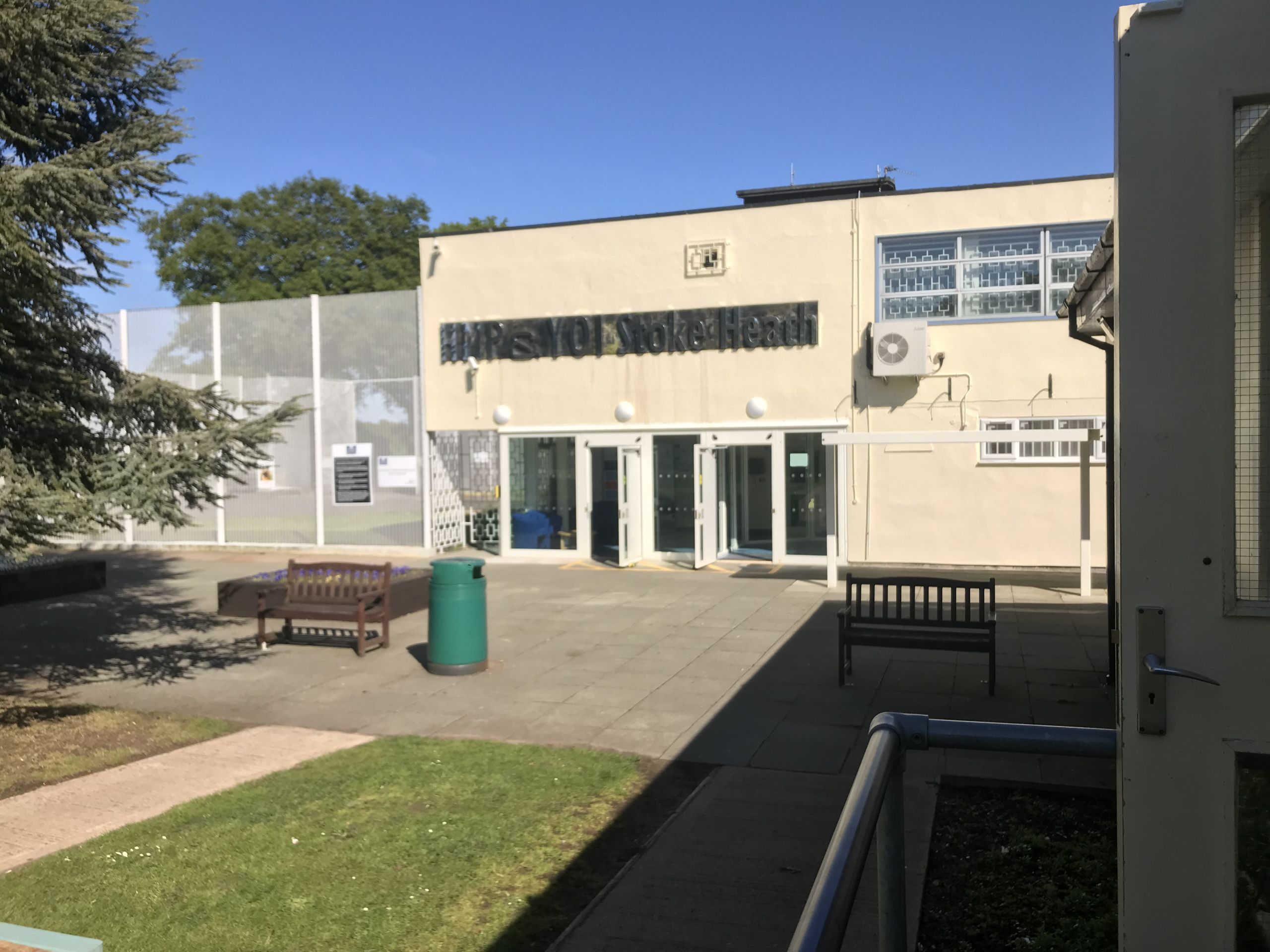
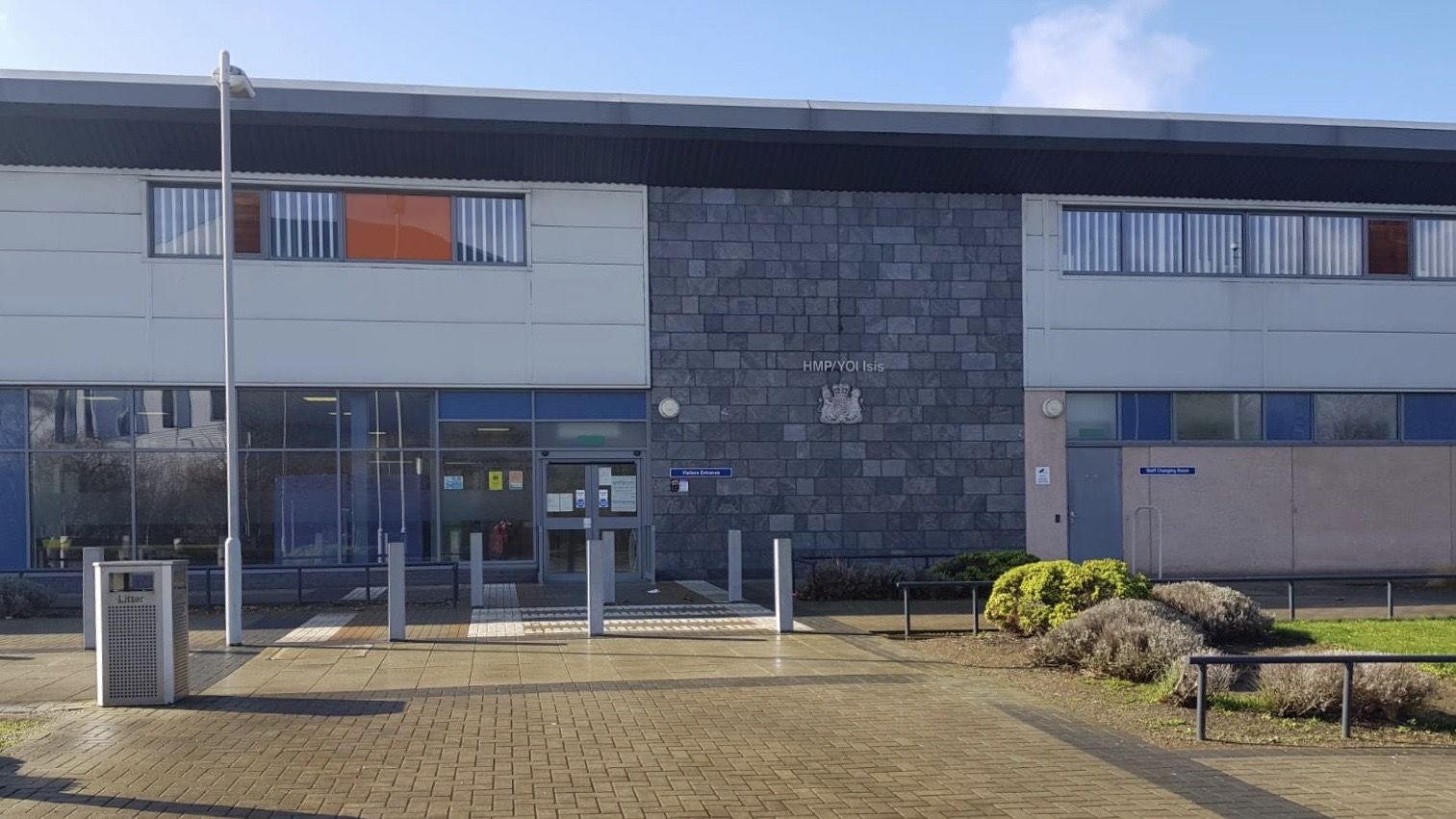
A mother's story
My mum has visited my brother with me in every prison he has been in.
She has always been vocal with officers if she feels something isn't being handled correctly. She talked about the visits we went on and what we experienced there, below is her talking about one of our experiences visiting Nathanael:
Families have a unique perspective as they want the best for their loved ones, but also want them to come out of prison as better people who are less likely to reoffend. I asked her whether she felt Nathanael was less likely to reoffend now that he is out of prison, she said:
I interviewed my mum multiple times. We spoke about her experiences visiting my brother and what she believes makes a prison 'good' and whether she felt more comfortable with my brother being in a public or private prison:
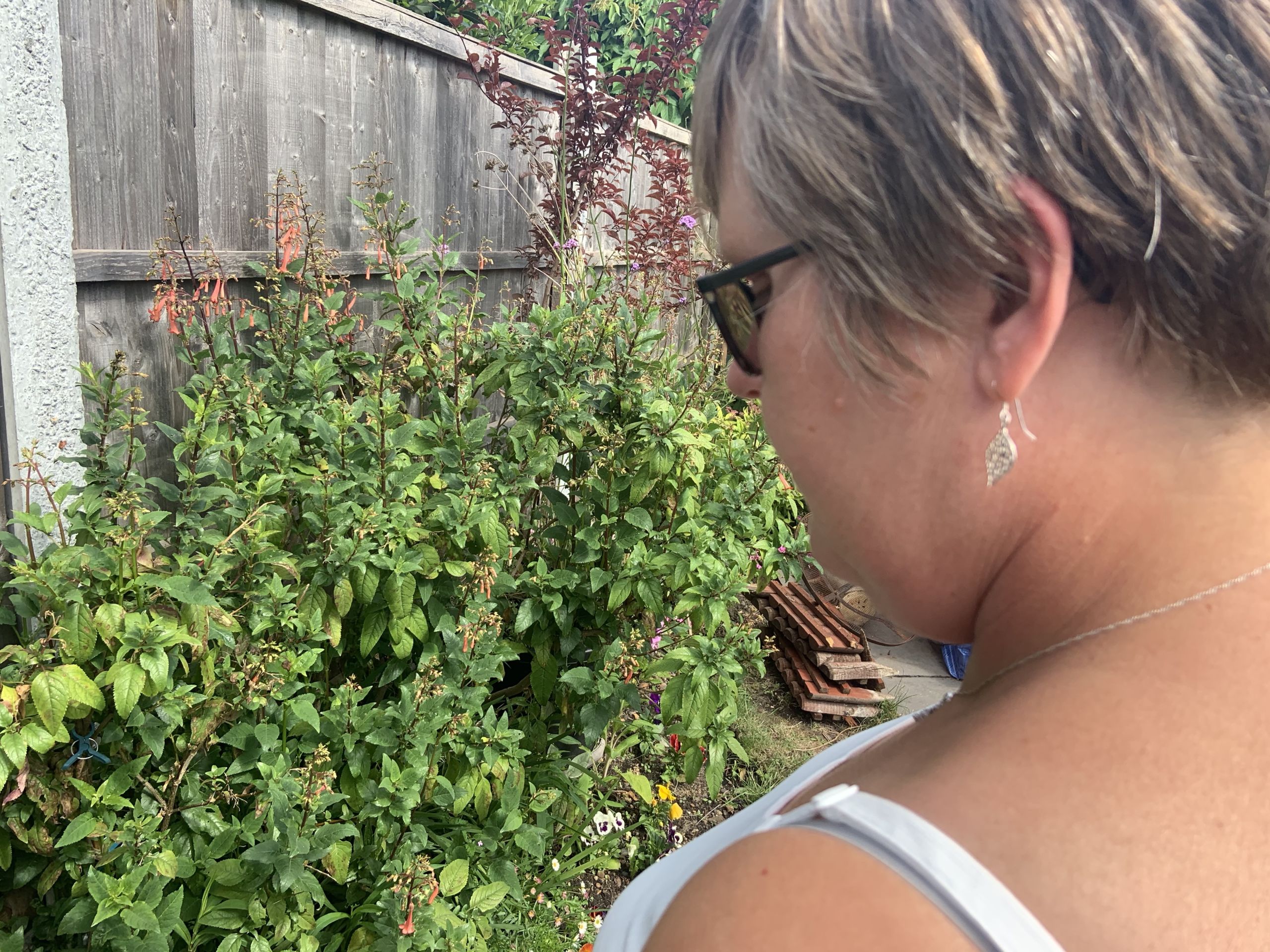
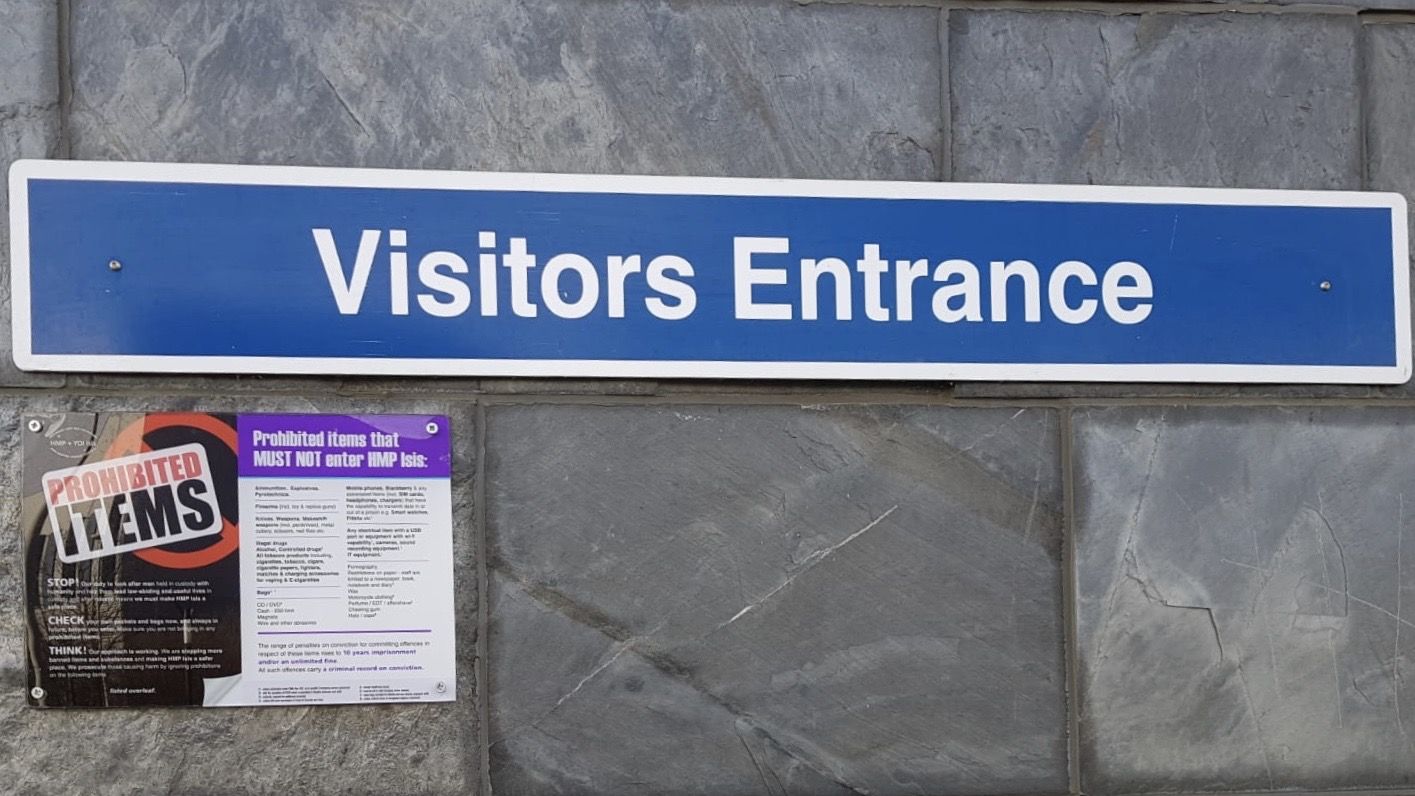
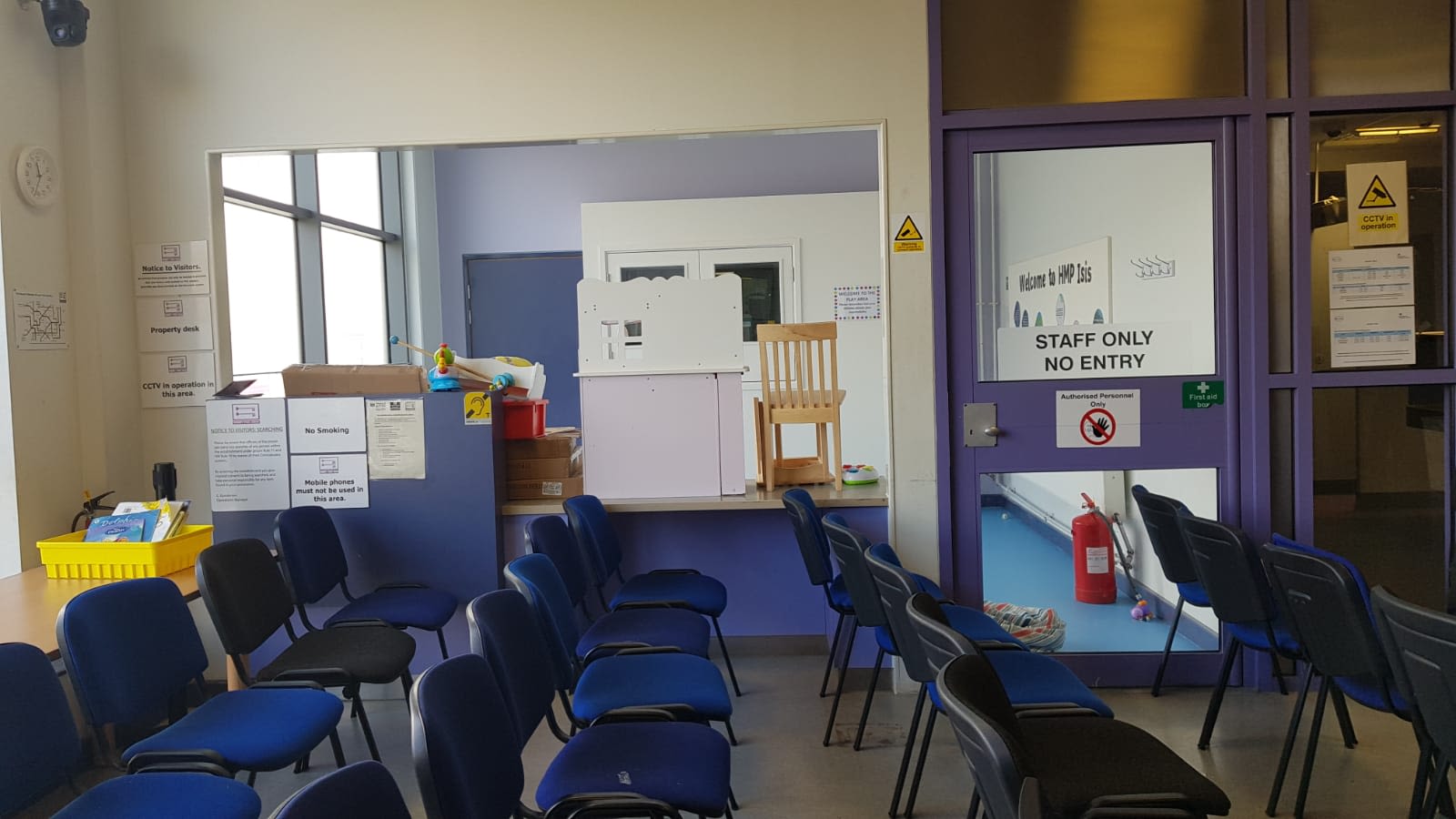
Waiting area for visits at HMP/YOI Isis
Waiting area for visits at HMP/YOI Isis
A prison officer’s story
One of the best people to ask when discussing prisons is someone who works on the frontline within them.
Officer X has been working within prisons for over 15 years and has seen it change dramatically. He has worked only in public sector prisons.
I wanted to know from a prison officer's perspective, which sector is better for officers and which is better for prisoners, he said:
"The public sector is superior to the private. Rumour has it that private prisons are run for profit and not for the good cause.”
“Obviously there is some good that comes from private prisons. The facilities are modern, contemporary and with state of the art technology that assists prisoners, for example, in-cell showers and in-cell phones. Some have computer systems in the cells that allow the prisoner to place orders for health care appointments and order from the weekly tuck shop known as the canteen."
“These facilities help the establishment to cut the staffing levels to a minimum, and give the prisoner privacy and personal independence.”
Although he has spent such a long time in the public sector, I wanted his professional opinion on which sector he thinks is better, he said:
“I can't judge which is better as I haven't worked for a private prison, however a few private prisons have run into difficulties - they had underestimated in their budgets, in order to hit profit margins. When they would reach this stage, the government would oversee their methods and practices through regular inspections. Failings in these inspections can result in improvement notices served or the prison taken over by the public sector. This happened recently at HMP Birmingham, which was public at first, but then taken over by G4S. It ran into difficulties, with violence, prisoner unrest, lack of control, massive drugs ingress. All this down to lack of staff, and also inexperienced ones.”
He explained what makes a prison safest and most effective, he said:
“I do not believe a prison can be run effectively for profits. Extra staff leads to all round safety for both staff and prisoners, more facilities for prisoner's to spend out of their cells doing purposeful activities. More time spent interacting with prisoners out of their cells, on offence related courses leading to rehabilitation and preventative measures being taught.”
I have interviewed officer X multiple times, in an earlier interview I asked him what makes a good prison officer, he said:
"The most important attribute to becoming an officer, in my opinion is honesty and good communication between you and the prisoner, being firm but fair and most of all - dealing with all the prisoners as an equal and not having any favourites. Treating them all the same, in regards to how they're managed and their entitlements."
I asked him if the training he received all those years ago was useful, he said:
"At the college they can only show you certain things. I learnt various things: first aid, how to manage a prisoner, how to talk, how to deal with them, where to position myself. But there are a lot of things they don't teach you. They explained it but didn't really go into depth with regards to severe self harm, mental health, deaths in custody, such as suicides, constant violence, assaults on prisoners and on staff. They mention the shifts, but it's only when you do them you see they're really exhausting - the mental strain on you tires you out."
I asked him what would make the prison system better run, he said:
"More resources are needed to help with mental health i.e. psychiatrists, mental health nurses, more staff to deal with self harm."
He explained what he thinks would help with rehabilitation, he said:
"Regular offenders should be sent to tougher prisons where hard labour is on offer on a daily basis. So, if it was a first time offender, he could go to a softer jail or easier jail but if he was to repeat he shouldn't go back to that jail, he should go to a tougher one. But that's my own personal opinion."
He told me the major changes he has seen over his time working prisons, he said:
"There's been a lot of change since the staff cuts, that's one of the major things within prisons - the staff and man power in dealing with prisoners. In the time I've been doing the job I can honestly say that prisoners have got a lot more violent. And we've had to deal with it with less staff and less resources which has made it pretty difficult."
This is evident in the data provided, with the rise of assaults over recent years. It is also interesting to note that, although Officer X has only worked in public prisons, he still believes in treating prisoners fairly and equally. This agrees with my mum's point that it really is down to the individual officer, as to whether they will treat prisoners respectfully or not.
The mental strain prison officers go through is likely to be overlooked, but the shift patterns are difficult and it is a tough environment to work in. That is why experienced staff are so important.
Officer X was unable to give his name as prison officers take an oath when they start their job to not talk to press.
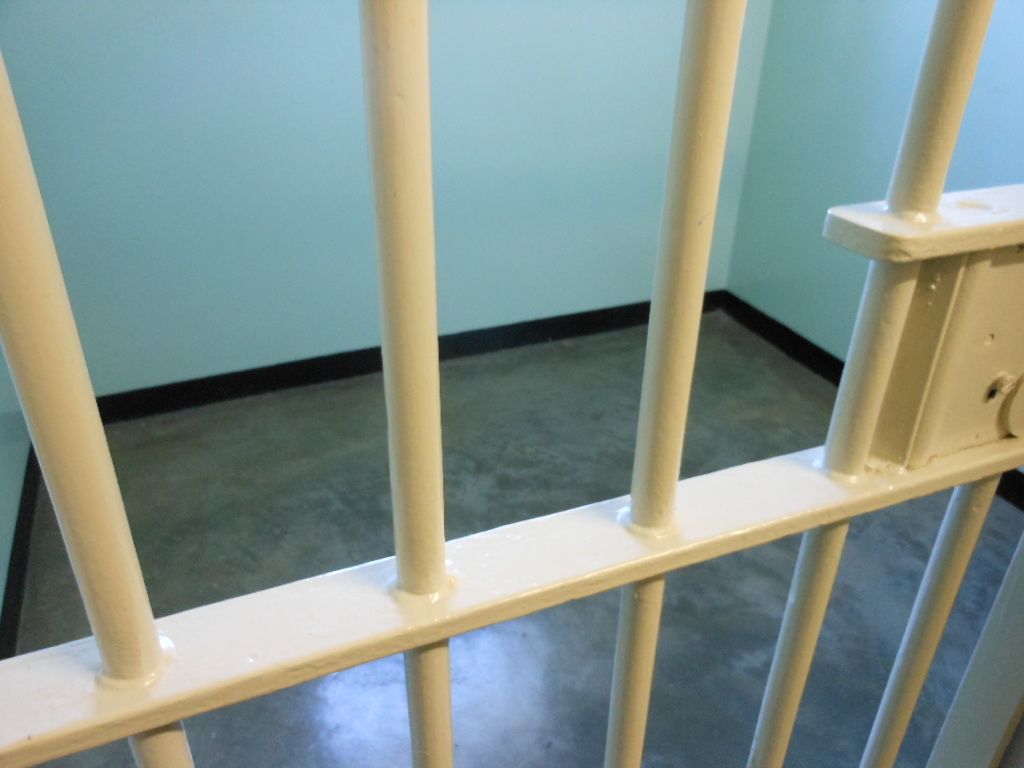
A prison expert's story
Speaking to those who are directly affected by privatising prisons is an ideal way to understand its impact. But there is a political aspect that is important when understanding the differences. I spoke with the ex Finance Director of the Prison Service, Julian Le Vay.
He was heavily involved in the initial process in the 1990s and has been blogging his opinions on the privatisation of prisons since his retirement.
He explained that the reason prisons were outsourced initially was because the entire prison service was failing - outsourcing was a way of fixing it. He also explained how the issue of privatisation shouldn't be at the forefront of the debate; there are more pressing issues within the prison system. He said:
Julian has also published a book, Competition for Prisons: Public or Private? so he is best equipped to explain the theory behind privatisation.
Julian explained why he thinks people are so opposed to privatisation and what the differences are between the two sectors, in terms of quality.
Why are people so opposed to private prisons?
Is there a difference in quality between the two sectors?
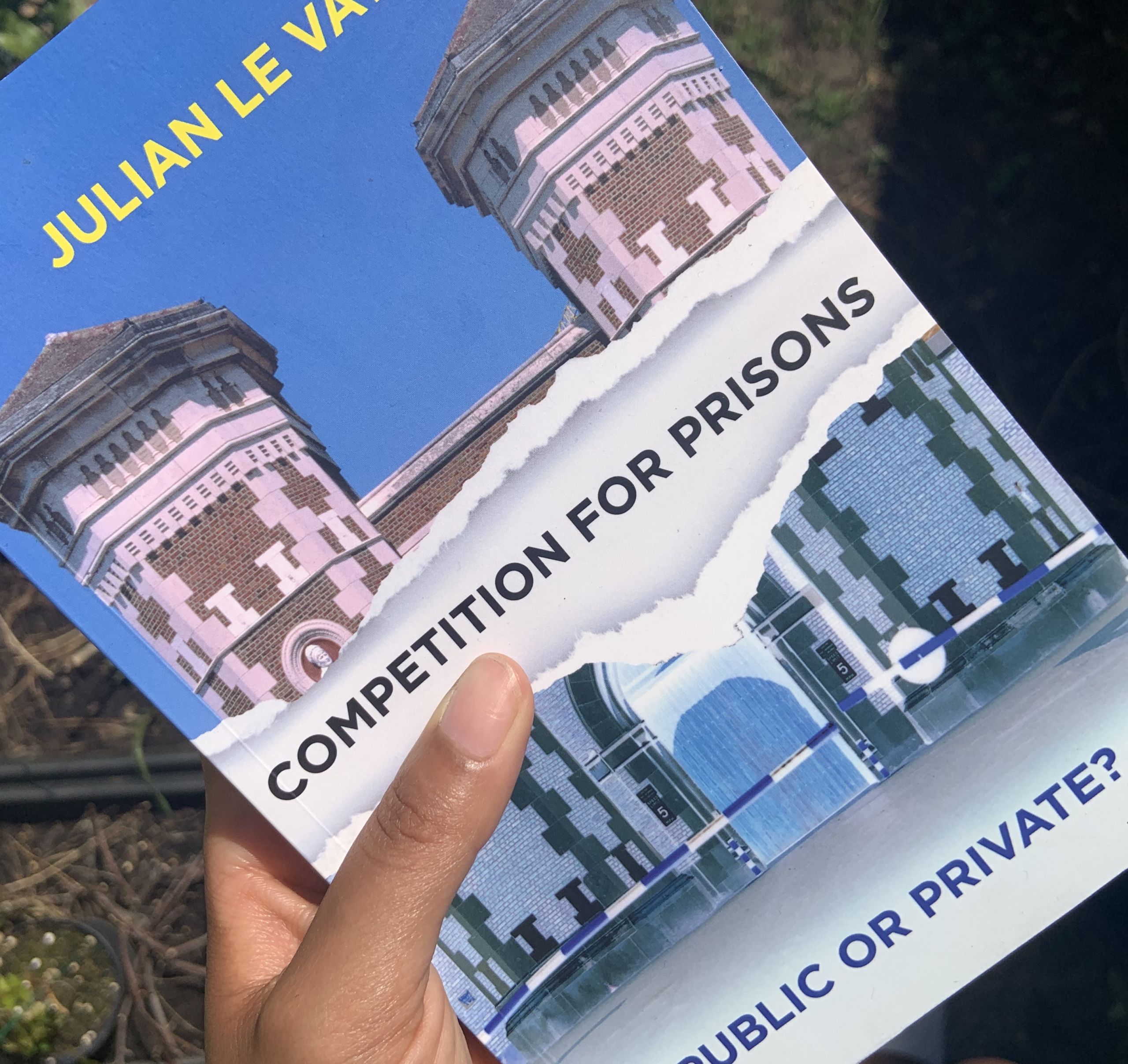
Competition for Prisons: Public or Private? by Julian Le Vay
Competition for Prisons: Public or Private? by Julian Le Vay
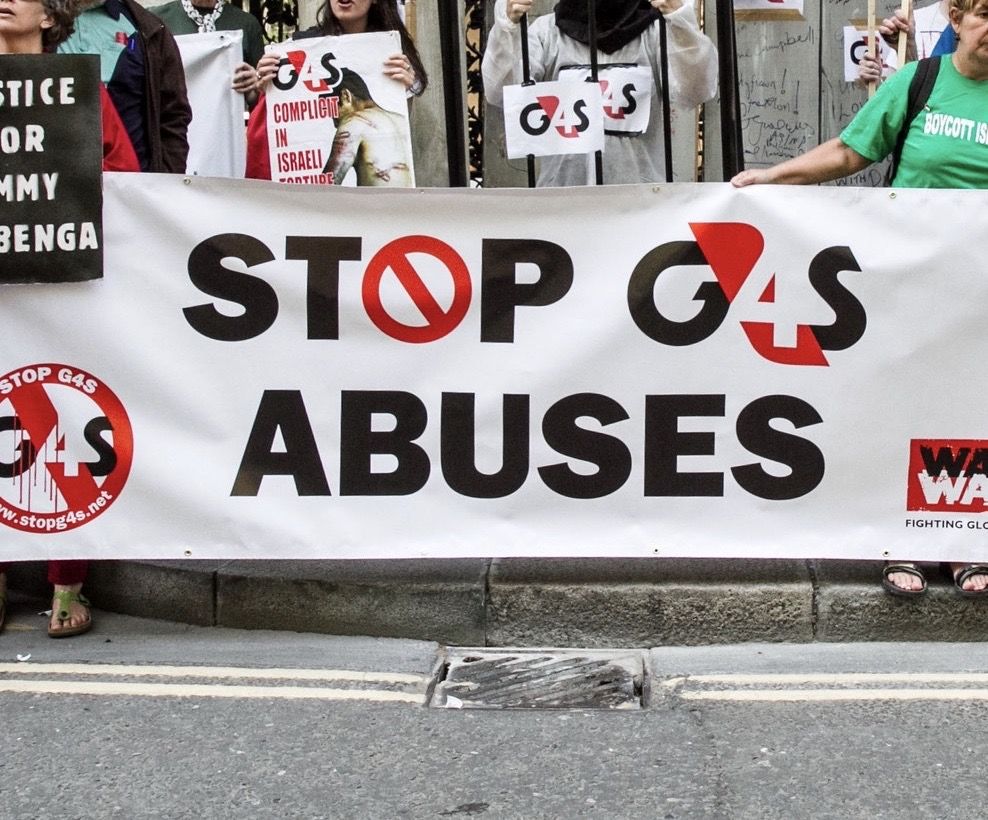
G4S protest after the death of Jimmy Mubenga, who was restrained on a deportation flight by G4S staff and later died.
G4S protest after the death of Jimmy Mubenga, who was restrained on a deportation flight by G4S staff and later died.
The other side of the political argument
Julian was heavily involved in using competition to make the prison system stronger. But there are many who believe privatisation has been detrimental to prisons. Labour said in their manifesto last year that they would stop any more public prisons being privatised. So there must be some political issues with outsourcing.
There is a campaign group, We Own It, who are dedicated to putting public services back in the hands of the public. On their website they give 10 reasons why privatisation is so bad:
1. Services get worse
2. Privatisation costs more
3. You can’t hold private companies accountable
4. You don’t get a democratic voice
5. Privatisation creates a divided society
6. Public services are natural monopolies
7. Privatisation means fragmentation
8. Private companies cherry pick services
9. Privatisation means less flexibility
10. Privatisation is risky
They expand on all these reasons on their website.
Frances Crook, OBE is the head of the Howard League for Penal Reform. The Howard league is a charity that focuses on many things within the prison system, such as transforming prisons and carrying out legal work for young people in the prison system.
Frances Crook said in a blog post:
“Despite political assumptions that the private sector is inherently superior at service delivery, private sector prisons are not necessarily better or worse than public sector prisons. When they get it right, they can provide decent and positive environments. But when they get it wrong, which seems to be more likely (but not inevitable) if they are run cheaply, they can be chaotic and dangerous places, which are not good for either the staff who work in them or the prisoners who live in and will be released from them. When things go wrong in prisons, they go wrong in very significant ways: riots, escapes, murders, suicides and so on.”
Frances has blogged about many wrongdoings by the private sector, the crisis at HMP Birmingham being a very prominent one that has been mentioned a lot.
Another instance of wrongdoings by the private sector was the Human Rights Violation at HMP Peterborough Women’s prison. Illegal strip searches were carried out on three woman and a woman who was transitioning to male, while in a prison under ownership by Sodexo. It was so serious it was taken to the High Court and the court ruled it was unlawful, the court said:
“There were numerous serious, systematic and widespread failures at Peterborough prison over the relevant period which led to a number of strip searches being carried unlawfully, and for a variety of different reasons.”
All three private companies have run into scandalous issues. Serco was fined nearly £23million for fraud. It was during their contract to electronically tag criminals where they falsely accounted and falsely represented information to the Ministry of Justice between 2011 and 2013.
So, although the everyday life of a private prison may have its benefits -according to my brother, the scandals and mismanagement at a higher level combined with their lack of accountability can cause serious problems and even Human Rights violations.
So which sector is actually better?
When I started looking into the privatisation of prisons I had a pretty clear idea in my head of what I thought made a 'good' prison.
I disagree with the privatisation of public services in general and prisons are no exception. But from conducting my research and talking with those directly affected it made me challenge what I thought I knew and draw a more well informed conclusion:
There are positives just as there are negatives.
As someone with a close family member that has been in and out of prison it is easier to agree with his consensus that private prisons are better because I wouldn't want him to suffer. But are they effective in rehabilitating prisoners? That should be, in my opinion, one of the main goals of prisons. If that isn't being achieved, then I don't believe the prison has done its job effectively.
This, however, may not be an ownership issue as both sectors are failing at rehabilitating prisoners.
The scandals and charges that private companies have faced is another big issue for me. This lack of accountability that they have is dangerous and has caused massive problems.
The inexperienced staff cause an environment that is not as safe as it could be with stricter officers who have more experience in the role.
Mental health in prisons needs to be better addressed across the board. Both public and private sectors need to work harder to stop the increase in self harm and better look after prisoners, which would hopefully stop them from reoffending.
The violence within prisons is also at its recorded highest in recent years across both sectors. This should be addressed from a government level to develop policies implemented across all prisons.
All these factors tell us that more money needs to be put into the prison system to stop reoffending and promote rehabilitation.
So, although much of the research I have done has been quite balanced in terms of which sector is better, I still believe it is more important to keep the higher goal of rehabilitation and not profit. Government policies should seek rehabilitation which would reduce the need for prisons in the long run. If rehabilitation were the primary goal of all prisons it would have given my brother greater life opportunities and less chance of reoffending.

